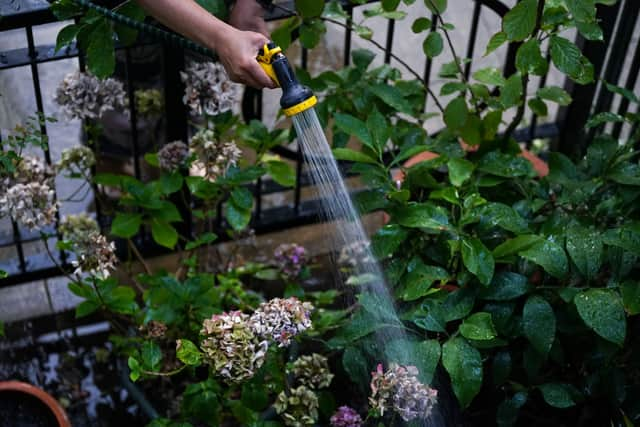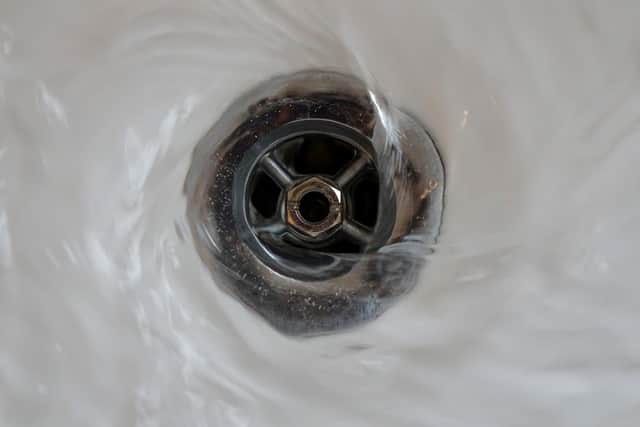Drought declared in the West Midlands - what it means for the region
This article contains affiliate links. We may earn a small commission on items purchased through this article, but that does not affect our editorial judgement.
and live on Freeview channel 276
A drought has been officially declared across the West Midlands following months of hot weather in the UK.
The prolonged dry weather in the region has resulted in low river flows and reservoir levels falling across the River Severn catchment area. The announcement, following the latest meeting of the National Drought Group, means 10 out of the Environment Agency’s 14 English regions are now in drought.
Advertisement
Hide AdAdvertisement
Hide AdThe National Drought Group Meeting brought together Environment Department (Defra) and Environment Agency officials, water companies, and groups including the National Farmers’ Union, to discuss the situation. Following the meeting, officials said there was no threat to essential supplies, and that water companies had confirmed they have enough water for essential business and household needs.
Here’s what you need to know about how the drought could impact the region.


What is a drought?
According to the Met Office, in the simplest terms, drought is defined by a lack of water. Unlike most other extreme weather, drought tends to build up over time and can last from as little as a few weeks up to several years.
The severity of drought is usually measured both by its impact on human activities, such as agriculture and leisure, and by its effect on large-scale natural events such as wildfires. There are different types of drought, including ecological drought – when lack of water affects the local environment as well, and hydrological drought – when water supplies such as streams and reservoirs are low, which can be caused by low rainfall, lack of snow melt, or other reasons.
What will it mean for the region and will households be affected?
Advertisement
Hide AdAdvertisement
Hide AdEnvironment Agency officials said the drought is not a threat to essential water supplies in the region.
Recent rainfall in some parts of the country has not been enough to replenish rivers, groundwater or reservoirs to normal levels, but the Environment Agency agreed that sufficient rainfall over the autumn and winter would replenish rivers, lakes, groundwater and reservoirs to normal levels by spring.
That will require a returned to sustained average or above average rainfall in the coming months – and until and unless that happens, officials said the drought is not a threat to supplies.
It has been the driest summer for 50 years, and the hot dry weather has also led to a large increase in demand for water, with impacts on the environment including rivers and ponds drying out and fish and other wildlife dying or suffering.
Advertisement
Hide AdAdvertisement
Hide AdA drought does not necessarily trigger action, but the Environment Agency can ask water companies and the government to do things to protect essential water supplies, such as temporary use bans, more commonly known as hosepipe bans. Six water companies – Southern Water, South East Water, Thames Water, Yorkshire Water, South West Water and Welsh Water – have so far implemented or announced hosepipe bans, as part of efforts to tackle the drought in the UK’s other regions.


Will Severn Trent implement a hosepipe ban to tackle the issue?
Earlier this month (August), Severn Trent, which supplies the water to households across the region, confirmed that they aren’t introducing temporary measures. With water supplies in the West Midlands not being affected by the drought, the company hasn’t announced any plans to introduce a hosepipe ban. It has been 27 years since Severn Trent introduced a hosepipe ban.
‘This summer should be a wake-up call’
The Environment Agency said planning should begin now on how to manage shortfalls in 2023 if the coming months are dry.EA chief executive Sir James Bevan warned: “Water pressures on wildlife and the environment remain high and despite recent rainfall and the pause in the hot dry weather, we must continue to manage water wisely.”
He added: “Both for the coming year and, with the impact of climate change, for the coming decade, a complete gear change is needed for how water companies and all water users, from farmers to households, think about how they use water and understand its fundamental value.
Advertisement
Hide AdAdvertisement
Hide Ad“This summer should be a wake-up call for how the nation prepares for weather extremes and how we make the very best use of our water resources.”
A message from the editor:
Thank you for reading. BirminghamWorld is Birmingham’s latest news website, championing everything that is great about our city - reporting on news, lifestyle and sport. We want to start a community among our readers, so please follow us on Facebook,Twitter and Instagram, and keep the conversation going.
Comment Guidelines
National World encourages reader discussion on our stories. User feedback, insights and back-and-forth exchanges add a rich layer of context to reporting. Please review our Community Guidelines before commenting.
